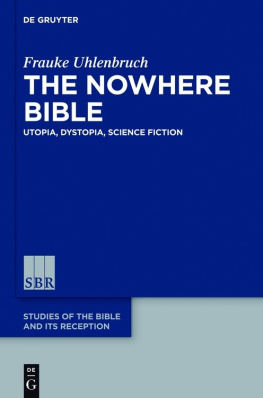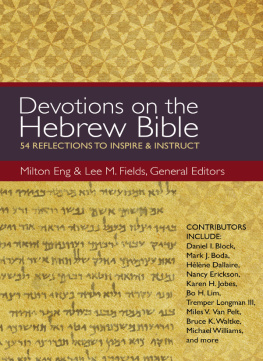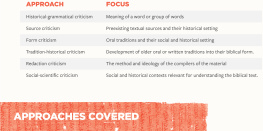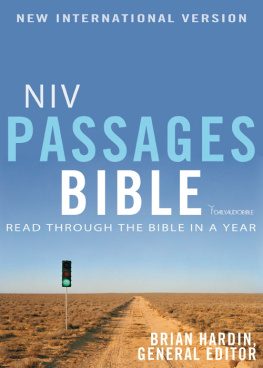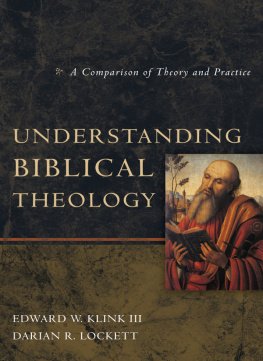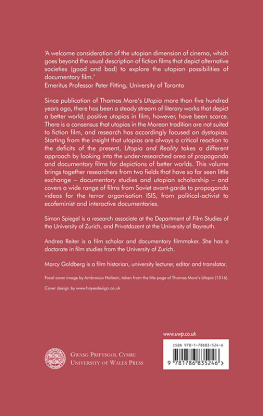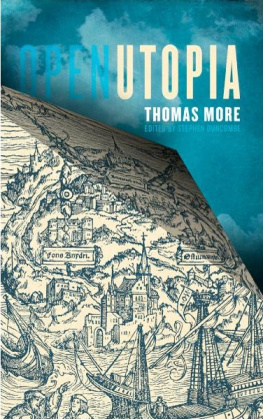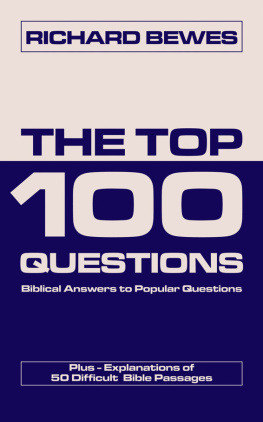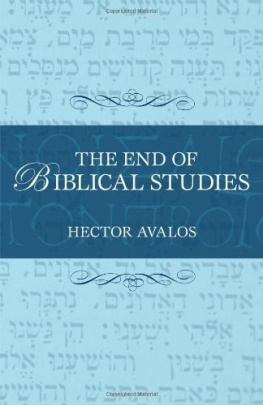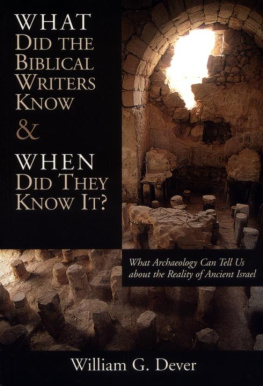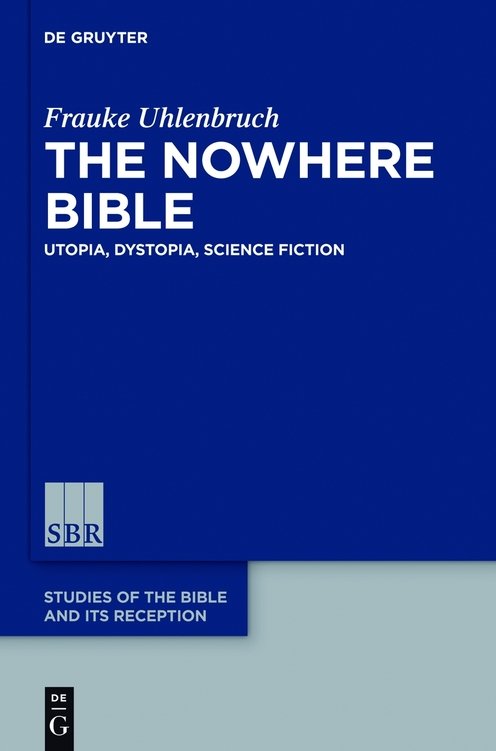Bibliography
Abrams, J.J. Star Trek: Into Darkness. Paramount, 2013.
Aichele, George, and Tina Pippin. Violence, Utopia, and the Kingdom of God: Fantasy and Ideology in the Bible. London: Routledge, 1998.
A.J. Jacobs: My Year of Living Biblically. http://www.ted.com/talks/a_j_jacobs_year_of_living_biblically.html .
Allport, Gordon W., and J. Michael Ross. Personal Religious Orientation and Prejudice. Journal of Personality and Social Psychology 5, no. 4 (1967): 43243.
Ammerman, Nancy Tatom. Bible Believers: Fundamentalists in the Modern World. New Brunswick, NJ: Rutgers University Press, 1987.
Atwood, Margaret. In Other Worlds: SF and the Human Imagination. London: Virago, 2011.
Atwood, Margaret. MaddAddam . London: Bloomsbury, 2013.
Atwood, Margaret. Oryx and Crake. New York: Anchor Books, 2004.
Atwood, Margaret. The Handmaids Tale. London: Vintage, 1996.
Atwood, Margaret. The Year of the Flood. New York: Anchor Books, 2010.
Bacon, Francis. New Atlantis. In Utopia, New Atlantis and The Isle of Pines, edited by Susan Bruce, 14986. Oxford: Oxford University Press, 2008.
Bakhtin, M. M, V. N Voloshinov, and P. N Medvedev. The Bakhtin Reader: Selected Writings of Bakhtin, Medvedev, and Voloshinov. Edited by Pam Morris. London; New York: E. Arnold, 1994.
Baum, Seth D., Jacob D. Haqq-Misra, and Shawn D. Domagal-Goldman. Would Contact With Extraterrestrials Benefit or Harm Humanity? A Scenario Analysis. Acta Astronautica 68, no. 1112 (2011): 211429.
Beck, Ulrich. All Aboard the Nuclear Power Superjet. Just Dont Ask about the Landing Strip. The Guardian, July 17, 2008, sec. Comment is free. http://www.guardian.co.uk/commentisfree/2008/jul/17/nuclearpower.climatechange .
Beck, Ulrich. Risk Society: Towards a New Modernity. London: Sage, 2007.
Bellamy, Edward. How and Why I Wrote Looking Backward. In America as Utopia, edited by Kenneth M. Roemer, 2227. New York: Burt Franklin & Co, 1981.
Bellamy, Edward. Looking Backward 20001887, 2011.
Ben Zvi, Ehud. Reading and Constructing Utopias: Utopia/s And/in the Collection of Authoritative Texts/Textual Readings of Late Persian Period Yehud. Studies in Religion/Sciences Religieuses, published online 2013. doi:10.1177/0008429813488344.
Ben Zvi, Ehud, ed. Utopia and Dystopia in Prophetic Literature. Helsinki; Gttingen: Finnish Exegetical Society; Vandenhoeck & Ruprecht, 2006.
Ben Zvi, Ehud. Utopias, Multiple Utopias, and Why Utopias at All? The Social Roles of Utopian Visions in Prophetic Books within Their Historical Context. In Utopia and Dystopia in Prophetic Literature, edited by Ehud Ben Zvi, 5585. Helsinki; Gttingen: Finnish Exegetical Society; Vandenhoeck & Ruprecht, 2006.
Berge, Kre. Literacy, Utopia and Memory: Is There a Public Teaching in Deuteronomy? Journal of Hebrew Scriptures 12 (2012). doi:10.5508/jhs.2012.v12.a3.
Berkhofer, Robert F. The White Mans Indian: Images of the American Indian from Columbus to the Present. New York: Knopf, 1978.
Berlin, Isaiah. On the Pursuit of the Ideal. The New York Review of Books 35, no. 4 (March 17, 1988). http://faculty.up.edu/asarnow/351/Berlin%20Pursuit%20of%20the%20Ideal.htm .
Berlin, Isaiah. The Crooked Timber of Humanity: Chapters in the History of Ideas. London: Pimlico, 2003.
Bielo, James S. Words Upon the Word: An Ethnography of Evangelical Group Bible Study. New York: New York University Press, 2009.
Blenkinsopp, Joseph. Ideology and Utopia in 12 Chronicles. In What Was Authoritative for Chronicles?, edited by Ehud Ben Zvi and Diana Edelman, 89103. Winona Lake: Eisenbrauns, 2011.
Bloch, Ernst. The Spirit of Utopia. Translated by Anthony A. Nassar. Stanford: Stanford University Press, 2000.
Bckler, Annette, ed. Die Tora: Die fnf Bcher Mose in der bersetzung von Moses Mendelssohn. Mit den Prophetenlesungen im Anhang. Translated by Moses Mendelssohn. Berlin: Jdische Verlagsanstalt, 2001.
Boer, Roland. Novel Histories: The Fiction of Biblical Criticism. Sheffield: Sheffield Academic Press, 1997.
Boone, Kathleen C. The Bible Tells Them So: The Discourse of Protestant Fundamentalism. London: SCM Press, 1990.
Borges, Jorge Luis. A Universal History of Infamy. London: Penguin Books, 1975.
Borges, Jorge Luis. Kafka and His Precursors. In Labyrinths: Selected Stories and Other Writings, edited by James E. Irby and Donald A. Yates, 23436. London: Penguin, 1970.
Borges, Jorge Luis. Pierre Menard, Author of the Quixote. In Labyrinths: Selected Stories and Other Writings, edited by James E. Irby and Donald A. Yates, 6271. London: Penguin, 1970.
Borges, Jorge Luis. Tln, Uqbar, Orbis Tertius. In Labyrinths: Selected Stories and Other Writings, edited by James E. Irby and Donald A. Yates, 2743. London: Penguin, 1970.
Bradford, William. Of Plymouth Plantation. Edited by Harvey Wish. New York: Capricorn, 1962.
Brett, Mark G. Decolonizing God: The Bible in the Tides of Empire. Sheffield: Sheffield Phoenix Press, 2008.
Brodsky, Harold. The Utopian Map in Ezekiel (48:134). Jewish Bible Quarterly 34, no. 1 (2006): 2026.
Buss, Martin J. The Study of Forms. In Old Testament Form Criticism, edited by John H. Hayes, 156. San Antonio: Trinity University Press, 1974.
Butler, Samuel. Erewhon. EBook., 1999. http://www.gutenberg.org/ebooks/1906 .
Campanella, Tommaso. The City of the Sun. EBook., 2001. http://www.gutenberg.org/ebooks/2816 .
Carroll, Nol. The Philosophy of Horror: Or Paradoxes of the Heart. London: Routledge, 1990.
Carroll, Robert P. Wolf in the Sheepfold: The Bible as a Problem for Christianity. London: SPCK, 1991.
Cataldo, Jeremiah W.Whispered Utopia: Dreams, Agendas, and Theocratic Aspirations in Yehud. Scandinavian Journal of the Old Testament 24, no. 1 (2010): 5370.
Chalcraft, David. Is a Historical Comparative Sociology of (Ancient Jewish) Sects Possible? In Sects and Sectarianism in Jewish History, edited by Sacha Stern, 23586. Leiden: Brill, 2011.
Chalcraft, David. Sociology and the Book of Chronicles: Risk, Ontological Security, Moral Panics, and Types of Narrative. In What Was Authoritative for Chronicles?, edited by Ehud Ben Zvi and Diana Edelman, 20128. Winona Lake: Eisenbrauns, 2011.
Clarke, Arthur C. Rendezvous with Rama. London: Gollancz, 2006.
Clines, David J. A. Interested Parties: The Ideology of Writers and Readers of the Hebrew Bible. Sheffield: Sheffield Academic Press, 1995.
Clines, David J. A. Reading Esther from Left to Right. In On the Way to the Postmodern: Old Testament Essays, 19671998, 322. Sheffield: Sheffield Academic Press, 1998.
Coats, G.W. Conquest Traditions in the Wilderness Theme. Journal of Biblical Literature 95, no. 2 (1976): 17790.
Coats, G.W. The Wilderness Itinerary. Catholic Biblical Quarterly 34, no. 2 (1972): 13552.
Cohen, J. M., and Cristbal Coln. The Four Voyages of Christopher Columbus: Being His Own Log-Book, Letters and Dispatches with Connecting Narrative Drawn from the Life of the Admiral by His Son Hernando Colon and Other Contemporary Historians. Harmondsworth: Penguin Books, 1969.
Collins, John J. Models of Utopia in the Biblical Tradition. In A Wise and Discerning Mind: Essays in Honor of Burke O. Long, edited by Saul M. Olyan, 5167. Providence: Brown University Press, 2000.
Collins, Suzanne. The Hunger Games. London: Scholastic, 2009.
Columbus, Christopher. Select Letters of Christopher Columbus, with Other Original Documents, Relating to His Four Voyages to the New World. Edited by R.H. Major. 2nd Edition. London: The Hakluyt Society, 1870.

